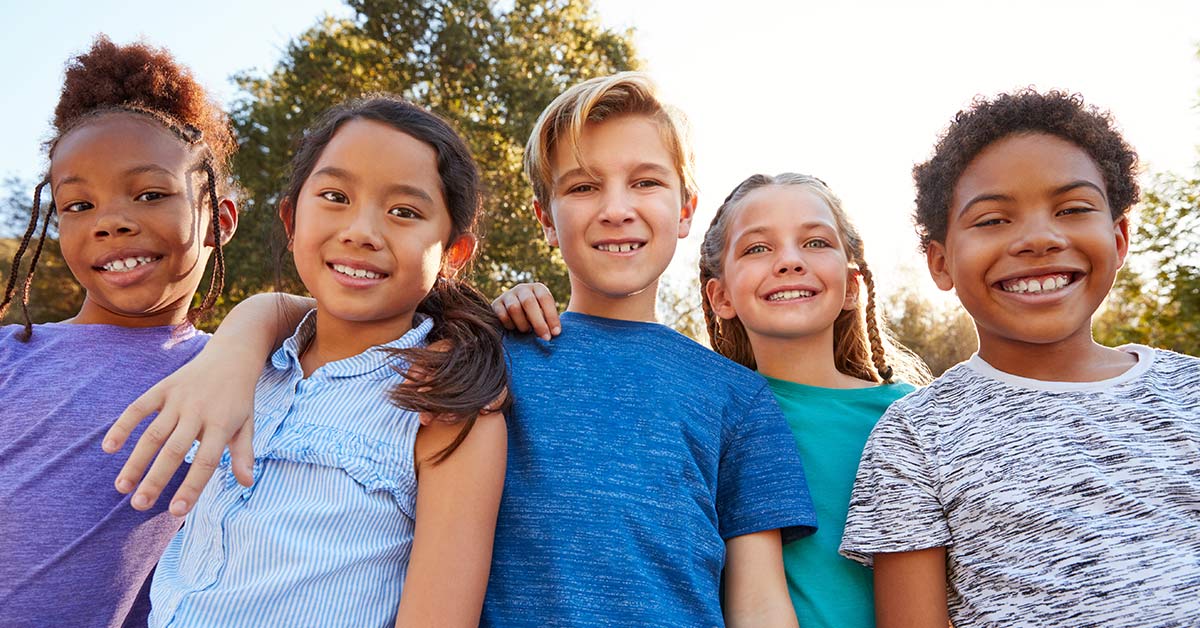Last September, Karena Cronin’s five-year-old attended school over Zoom. That’s how her mother overheard her daughter snap at her teacher who referred to the class as “you guys.”
“Hey, I am NOT a GUY!” the five-year-old exclaimed. And her mother suddenly realized the power of words said by an adult to a child.
“Words influence our sense of self-worth and signal whether and to what extent we belong in this world,” Cronin writes on Scary Mommy. She explains that “you guys” is inadequate to describe her daughter’s “beautiful existence on this earth.”
“Should we really be saying ‘you guys’?” the mother asks. “Is this an appropriately gender-inclusive term? Do our children embrace this language, or has it been thrust upon them?”
Many people may have never thought about this term. After all, it’s used so often; it’s almost invisible. Plus, many consider it a phrase that refers to everyone, regardless of their gender. And it seems to be used by people from many different experiences and backgrounds. Should people really stop using it?
Don’t Use “You Guys” While Speaking to Children
While Cronin acknowledges it’s a common term, she continues her post with another discovery she made while on lockdown. “Shortly after being home full-time with my daughters, I realized that they were defaulting to male pronouns to describe the world around them… And they were also saying ‘you guys’ to refer to people. I was disheartened, to put it mildly.”
However, Cronin admits that although she avoids saying “you guys” at her workplace, she used it all that time at home. Which is where her daughter’s learned it. Despite this, the term doesn’t make sense to her.
“When you really think about it, saying ‘you guys’ is confusing at best,” she writes. “At worst, it sends the wrong message. It tells any child who doesn’t identify as a ‘guy’ that they are invisible. It is somehow acceptable to subsume their existence under the male gender. It’s like saying mankind to refer to our common existence.
“‘You guys’ not only reflects the pervasive gender inequities in our society exacerbated by race, class, nationality, and religion, it also perpetuates the gender inequities that still permeate our society. While people’s intention when using the term ‘you guys’ might not be to contribute to this cycle of devaluation, it is nonetheless the impact.”
It’s undeniable that words have power. They dehuminize, they embolden, they hurt, and they bring justice. “My hope is that people will not only shift their language in the workplace but also in the home and at school,” Cronin concludes. “By changing just a few words, we can finally give our children the gift of being seen, in their entirety, so that they can grow into their truest selves.” [1]
Read: This Mom Supporting Her Transgender Daughter Is GOALS
Is “You Guys” Really Gender-Neutral?
Cronin isn’t alone with this sentiment. Christine Mallinson, a professor of language, literacy, and culture at The University of Maryland, Baltimore County, disagrees that “you guys” is gender-neutral. After all, if someone would refer to a woman as “that guy,” that is obviously inaccurate. “Simply calling it gender-neutral because we use it that way is not a great rationale.” [2] This same reasoning has been used to oppose the generic “he” as well as phrases like “mankind” and “chairman”.
Additionally, although “you guys” could be intended to be gender-neutral, it may not come out that way in a male-dominated crowd. Instead, the term could unintentionally exclude the women present. Amy Chong, a 29-year-old user-experience researcher in San Francisco, had a lot of experience with this. “There are a lot of guys in tech and ‘guys’ is used all the time in my work and social environments by both men and women, but since it doesn’t resonate with me anymore, I do feel like I’m not part of the group.”
Gender-neutrality aside, there’s the messy language aspect of using “you guys” as so eloquently put by an anonymous man who works at a pharmaceutical company. “I honestly think my biggest problem with ‘you guys,’ is the plural possessive form that it has spawned.” Consider his example: “Sorry I missed your guys’s meeting.” Truly, this isn’t pretty. [3]
What To Use Instead
People generally only want to speak in a way that feels authentic to them, which is why some people may choose to stop saying “you guys” while others will proceed to use it. In fact, many staunch feminists say the term without any misgivings. But if you are the former, know that there are gender-neutral terms you could swap it with. Again, language should feel authentic to the user, so feel free to find another term or make up your own. In a casual setting, the goofier the better!
- Y’all/You all
- Folks
- Friends
- Pals
- Peeps
- People
- Team
- Everyone
- Lovelies
- Homies
- Comrades
Keep Reading: ‘IT’S PRIMAL’: Mom sparks debate with bizarre breastfeeding photo
Sources
- “Let’s Stop Calling Our Children ‘You Guys’!” Scary Mommy. Karena Cronin. May 11, 2021
- “The trends that may end the “y’all” vs “you guys” debate.” Yahoo. Lila Mac Lellan. November 26, 2019
- “The Problem With ‘Hey Guys’.” The Atlantic. Joe Pinsker. August 23, 2018

